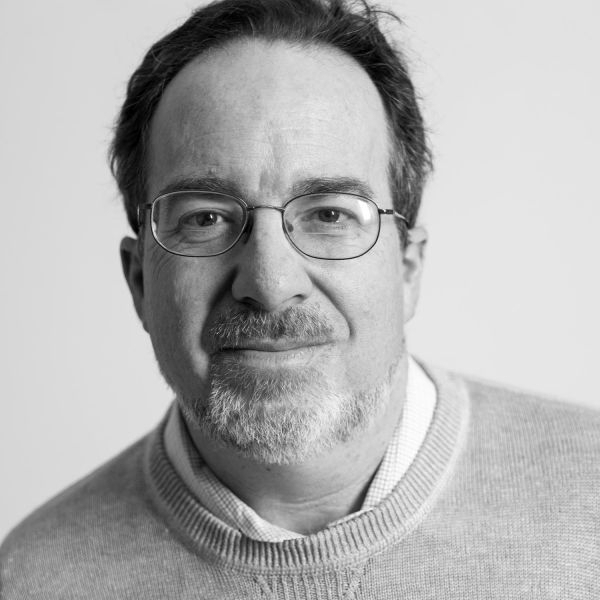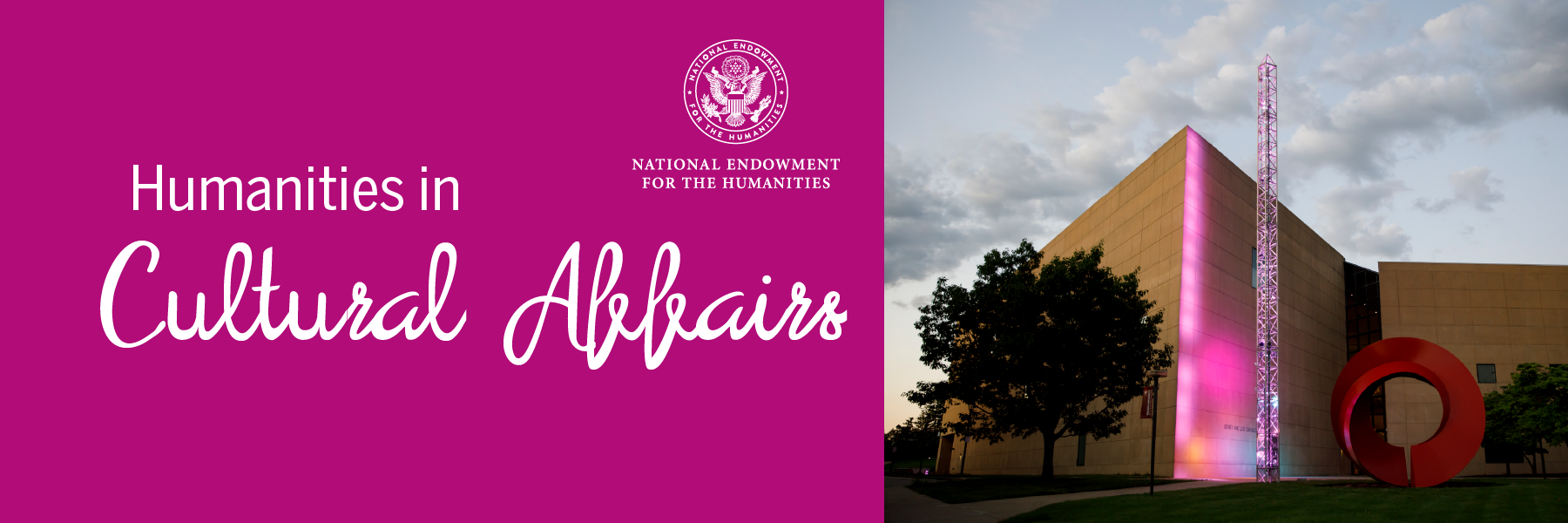Bringing Racial and Social Justice to the Public Sphere:
Professor, Department of History
Professor and Chair, Department of American Studies

The first workshop, "Bringing Racial and Social Justice to the Public Sphere: A Cultural Program," was presented alongside "Unmasked: The Anti-Lynching Exhibits of 1935 and Community Remembrance in Indiana." The exhibition, was on display at the Gayle Karch Cook Center for Public Arts and Humanities from March 25th to April 28th. The exhibition was open to the public by scheduled appointment.
The participants in the workshop began with a tour of "Unmasked" at the Cook Center on Friday, April 14th, 2023.
The workshop on Saturday, April 15th, 2023 facilitated open conversations between panelists and members of the audience. The conversations were based on presentations provided by the panelists.
The workshop took place in-person at the O’Neill School of Public and Environmental Affairs in Room A225. Attendees were able to register beginning on March 28th.
HICA Executive Summary
The aim of “Bringing Social and Racial Justice to the Public Sphere” was to initiate discussions of how artworks and exhibits, memorial sites, museums, and public history projects can contribute to memorializing difficult aspects of the American past; slavery, segregation, lynching, dispossession, genocide, racism, and labor conflict.
To that end, the workshop convened five scholar-practitioners engaged in connecting such public memory-work with cultural production—two working in the world of the public sphere and three based in universities. All five participants shared a commitment to telling transformative stories about the history of race and racism in the United States and finding novel ways to leverage the humanities in doing so.
I framed my introductory remarks around two concepts central to engaging the humanities with the public sphere, the first (perhaps) original to me, the second derived from the practice and method of oral historians and museum professionals.
In the former, I emphasized the question of translation. By this I meant that university-based academics have been trained primarily to speak to other academics, not to the public. Thus, I emphasized, we may have some unlearning to do.
I suggested that in the STEM fields, at least, much less translation is needed for the initial grant-seeking process, as practical or policy-based outcomes are relatively easy to explain and predict. If you are seeking funds in the humanities with a claim that it will have a public or policymaking impact, however, there may be a lot more explaining to do at the outset. As I will explain below, I think several of our invited practitioners have found novel ways of translating their humanities-based work into policy implications.
The second translation hurdle comes in making humanities-based research legible to a public audience, whether as an exhibit, a performance, or something else. Many of us working in the university have been instilled with the idea that the more inaccessible our work is, the higher academic value our peers will place on it. Conversely, the more accessible it becomes, the less “serious” it will be deemed by those doling out the rewards in our field. We need to unlearn those habits, and to find a way to speak in a new voice if we hope to bring our knowledge and our research to the public sphere. Again, several of our workshop participants have made great progress in this direction.
Finally, university academics face a third translation obstacle—if we want to advance in our careers, we need to convince our peers to value the work we do as research rather than as “service.” We need to translate our public humanities endeavors back into a language that tenure and promotion committees can understand—or else we need to change the way the reward system in research universities is set up. In this case, the workshop participants suggested we had a good distance to go.
The second challenge has nothing at all to do with the university. It has to do with the public in whose name we claim to speak. It cuts against the authority winning tenure and academic advancement confers. This is the question of what many of us call “shared authority”, a term used by oral historian Michael Frisch many years ago, and one I have heard many of my colleagues in the workshop invoke.
Here too, as intellectuals, researchers, academics, even curators, we must unlearn our training, the very training that gives us the independence to do humanities research, which emphasizes solitary work, individual credit, timelines dictated by tenure clocks, and authoritative knowledge, which is what the university rewards us for in explicit terms. We demonstrate our worthiness as academics, as museum curators, as thought leaders, by claiming that we are the authorities on this or that topic, and thus have the right to speak on these matters, wielding our authority as unchallengeable.
Yet in pursuing social and racial justice humanities work in the public sphere, many of us have discovered that we must share—even, sometimes, cede-- that authority to the communities in which we work and whom we claim to serve. Collectively, the presentations at this workshop demonstrated the ways we might effectively share our research-based knowledge with local communities and how we might cede some—if not all—interpretive authority to our community partners. For me, the takeaway was that this challenge requires a very delicate balancing act, one that swing in the direction of condescension and imposition on the one hand, or a kind of neo-populism on the other.
Below, I summarize how each participant’s public humanities practice might cast light on the two questions sketched above.
Nancy Bercaw (Center for Restorative History, Smithsonian Institution) kicked off the workshop. workshop with remarks about the Smithsonian’s project on “Restorative History.” Nancy, a lead curator in the division of political and military history at NMAH says on her website, “As a curator, I am engaged in community-centered practice and co-curation to amplify the vision and perspective of those making history.” Nancy’s presentation indeed emphasized the need for co-curation, entailing a recognition that “restorative” museum exhibits (for example) needed to consult with locals about “harms, needs, root causes” and curatorial “obligations” as they contemplate creating presentations of a community’s own history. Nancy emphasized how challenging this kind of work could be. First, it required a long-term and patient process of building trust with the partner community. Second, it means making museums and curators accountable to those communities. Examples of CRH work include a Mississippi-based project on Emmett Till, a current project on undocumented immigrants, and a prison education project conducted with Goucher College.
Kevin Murphy (Univ. of Minnesota) demonstrated how this kind of accountable project might emanate from a university through engagement with a surrounding urban community. His partnership with indigenous, immigrant and African American communities around the university, “Minnesota Transform” doesn’t just ask the University of Minnesota to fund publicly-engaged research on local racial and social justice, but to acknowledge—and perhaps even repair—the institution’s complicity in such injustices. To this end, “A Just University” consults directly with university neighbors about research projects, seeking to break the “patronage” model of local research and establish genuine partnerships instead, rooted in reciprocity. Such reciprocity is rooted first and foremost in the university’s acknowledgement that a) it rests on tribal lands, and b) the 20th century impact of urban renewal that permitted UM to expand its urban footprint directly harmed the surrounding communities.
Frederick Gooding Jr. (Texas Christian University) is chair of TCU’s race and Reconciliation Initiative, which is inquiring into his university’s entanglement with slavery, the Confederacy, and white supremacy. He brought his expertise on the placement and nature of monuments to a project that examined statuary around Washington, DC, a memorial landscape relatively devoid of African American subjects. Even where such subjects exist, he pointed out in his presentation, they remain problematic, as this image suggests.
Frederick was followed by Jodi Skipper (University of Mississippi), an applied anthropologist and historical archaeologist who uses excavated material culture to illuminate what might be buried under or behind existing sites of tourism and heritage in the South. She has, shall we say, dug up quite a lot, and spoke movingly about a community-based project she works with in Holly Springs Miss. called “Behind the Big House.” There, a group of residents sought to tell the untold stories of enslaved people that resided in the “quarters” behind the town’s signature antebellum homes. In this instance, Skipper pointed out, the process of co-curatorship ran somewhat in the other direction—in a manner of speaking, the project picked her rather than growing organically from her own research. But she felt obligated to share her expertise with a community that needed it, even if that didn’t necessarily fit with her university’s expectations of research-based scholarship. Mot interestingly, she pointed out that we often ask if these kind of projects will “lead” to racial reconciliation, but the process of community-based curatorship itself, rather than final product, might be where reconciliation lies.
Finally, we heard from Eola Dance, a former NPS Park Ranger who subsequently became the executive director of Black Lunch Table (BLT). Eola offered a perspective based on her interpretive work that reflects direct experience working at the exact spot at which humanities research meets the public face to face—where the work of “translation” and co-curation occur on a daily basis as a matter of course. As Eola explained, BLT is an oral history archiving project that is structured entirely around co-curation and community-defined needs. By convening and recording local roundtables, the organization helps artists and community activists tell their own stories to one another.
The lively concluding discussion derived from these five provocative presentations raised many questions. How much authority can we cede to community-based interpreters? How can we create histories in which people can actually recognize themselves? How do we identify which groups to work with locally? What does genuine “co-curatorship” look like? What do we remember, and how? Regardless of the specific answers, the workshop indicated that historical, cultural, exhibitionary, and interpretive work in the public humanities has come a long way when it comes to community collaboration, but continues to be limited by professional protocols and rewards that do not always recognize this kind of work as “research.”
Alex Lichtenstein, 18 May, 2023
Panelists
Nancy Bercaw, National Museum of American History/Center for Restorative HistoryEola Lewis Dance, Black Lunch Table
Frederick Gooding, Jr., Texas Christian University, Honors College/Sawyer Seminar—The Memory Project
Kevin Murphy, University of Minnesota, Heritage Studies & Public History
Jodi Skipper, University of Mississippi/Behind the Big House



